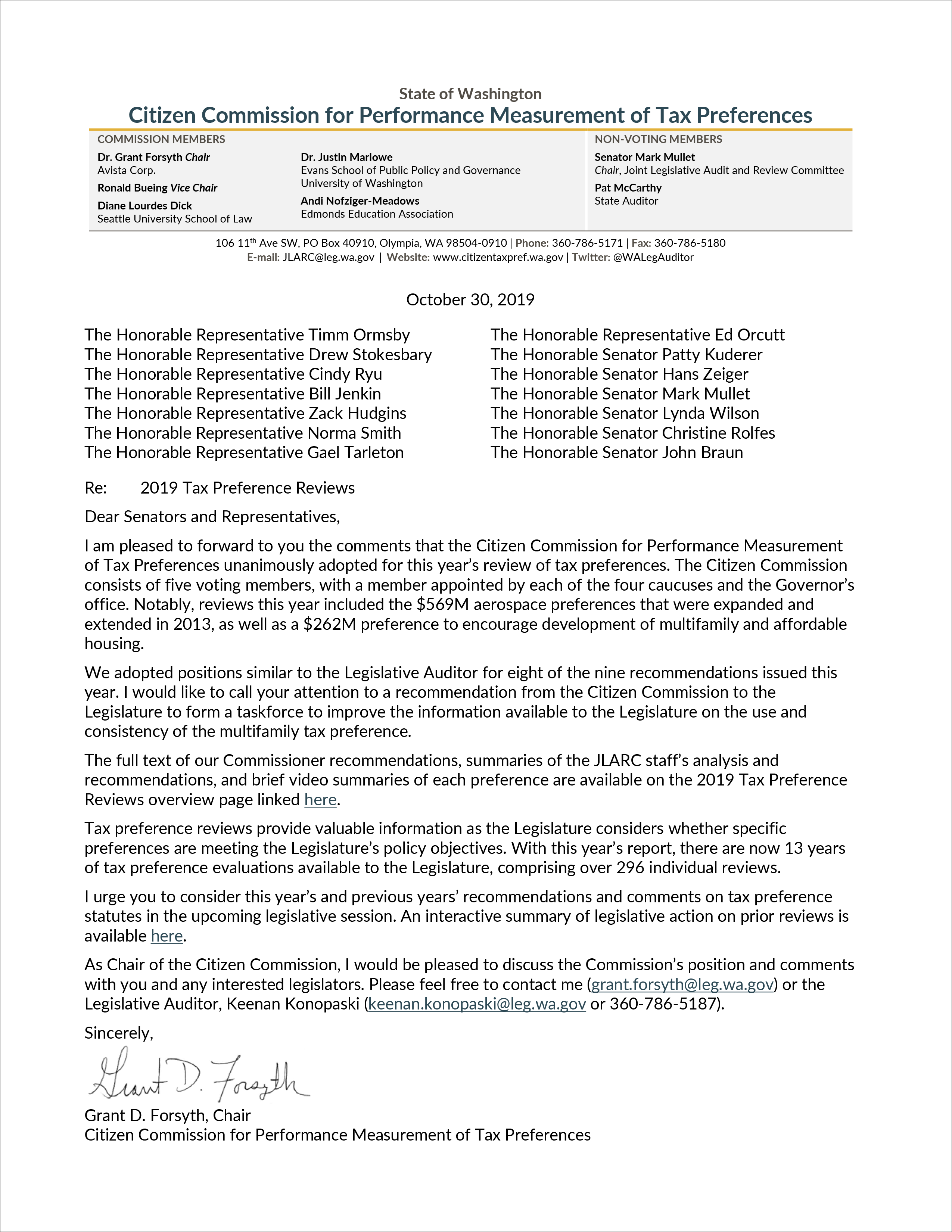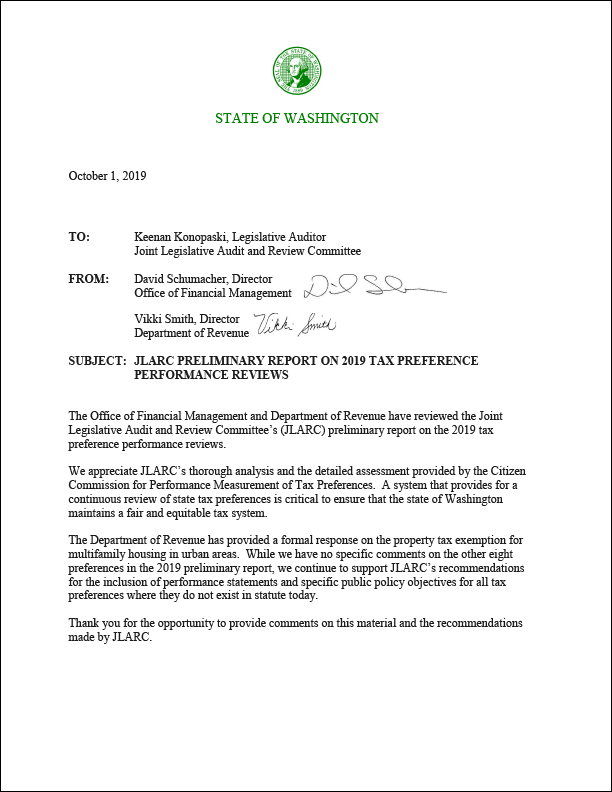JLARC staff separately reviewed a sales and use tax exemption for commuter air carriers that purchase and repair airplanes used primarily for in-state travel. The 2019 review can be found here.
Inferred public policy objectives
The Legislature did not state a public policy objective when it passed this preference in 2013. JLARC staff infer two public policy objectives based on testimony to the Legislature.
| Objectives (Inferred) | Results |
|---|---|
| 1. Streamline and simplify tax reporting for qualifying commuter air carriers. | Met. The preference is streamlining and simplifying tax reporting for one beneficiary and the Department of Revenue. |
| 2. Provide an alternative to property tax for certain commuter air carriers if they pay an aircraft excise tax that is similar to the amount they would have paid in property tax. | No longer met. JLARC staff estimate the one qualifying commuter air carrier pays between 50% to 63% less in excise tax than it would have paid in property tax. |
Recommendations
Legislative Auditor's Recommendation: Modify
The preference is meeting one of two inferred objectives. While it is simplifying reporting for one taxpayer and the Department of Revenue, it is not providing an alternative to property tax that results in a similar amount of tax paid.
The Legislature should modify the preference to:
- Provide a method to equalize commuter air carrier excise tax fees on airplanes with property taxes over time.
- Clarify why the preference is limited to commuter air carriers primarily located on private property.
- Provide a performance statement with stated objectives and metrics to determine if objectives are met.
More information is available on the Recommendations Tab.
Commissioners' Recommendation
The Commission endorses the Legislative Auditor's recommendation with comment. Extensive calculations by the Legislative Auditor suggests that current tax methodology is not revenue neutral relative to the older, more complicated methodology. The Legislature should be aware that the lack of neutrality is not the fault of industry; it’s an unintended consequence of much needed tax simplification. Because the new methodology has been in place since 2014, the industry has already budgeted in the current tax going forward. Therefore, should the Legislature decide to adjust the tax, it should be done in a way that increases the burden very gradually. Industry testimony indicates they operate with narrow margins and abrupt changes in costs can be difficult to absorb. The ability to absorb tax changes is an important consideration given that industry testimony and the Legislative Auditor’s research shows the industry provides unique transportation services to residents in remote parts of the state.
Committee Action to Distribute Report
On December 4, 2019 this report was approved for distribution by the Joint Legislative Audit and Review Committee.
Action to distribute this report does not imply the Committee agrees or disagrees with the Legislative Auditor recommendations.




